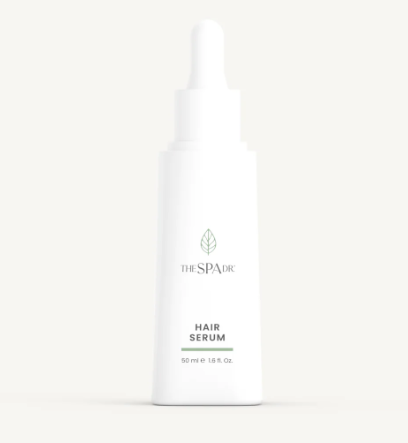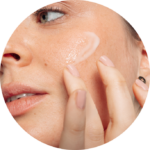Hormones are supposed to send the right signals to your skin. When they fluctuate or rapidly decline, your skin responds right away. Unfortunately you will notice a change in your appearance as well. If you are not sure what is happening in your body, here is a breakdown of hormone changes that make you look older. When your hormones aren’t at the proper levels it will reflect in how your skin looks. Below I’ve described three common hormone problems that contribute to skin issues.
Too Little Estrogen
The biggest culprit of sagging skin and loss of hydration among women is declining estrogen. There are several types of estrogen hormones, but in general they encourage cells called fibroblasts to produce collagen and elastin. With a sudden drop in estrogen, the skin appears thin, sallow, and saggy. Most notably, fine lines will turn into deep creases. The areas around the eyes and lips will droop slightly and lose firmness. Your skin will also not look as vibrant because less blood flow enters the skin.
Too Much Testosterone
Your body keeps a delicate balance between estrogen and testosterone hormones. Testosterone stimulates the sebum (oil) producing glands, which are important in protecting your skin with natural oils. Sometimes all of the hormone craziness will lead to a sudden increase in testosterone. If the balance of estrogen and testosterone tips, it leads to adult acne. If your skin is way too oily, you might be dealing with a rise in testosterone.
Too Little Thyroid
Low thyroid hormones are under-diagnosed in the United States. Millions of women and men may be walking around with sub-optimal thyroid even when their blood work (TSH) comes back normal. So how do low thyroid hormones affect your skin? When there is less circulating thyroid hormone, the skin will become chronically dry and brittle. It may also feel cold to the touch and appear pale.
What you should do if you suspect your hormones are imbalanced?
Sub-optimal hormone levels should never be diagnosed purely from your skin. Get help from a doctor specializing in hormones. She/he will be able to evaluate your hormone levels based on symptoms and blood tests. It is up to you and your doctor to find the best solution for imbalanced hormones. Whenever I discuss symptoms of hormone imbalance, some people become overly worried. My goal is never to create unnecessary anxiety. However, I want you to be armed with the knowledge of what could be happening with your body. Your hormones will impact your skin, for better or worse.
Here are some tips to help keep your hormones in check:
Maintain hormone homeostasis by managing stress, eating a balanced and nutrient-rich diet, and exercising routinely. If you have symptoms of hormone imbalances such as fatigue, dry skin and hair, weight gain, low drive, PMS, or an irregular menstrual cycle, talk with a doctor specializing in hormones to see if you may have thyroid, adrenal or sex hormone imbalances. Eat foods that support your liver to help ensure proper hormone metabolism. Foods such as cruciferous veggies, beets, carrots, walnuts, avocados and tomatoes are to name just a few.
Avoid harmful skincare ingredients and other sources of endocrine-disrupting chemicals (EDCs) such as plasticizers and pesticides. If you find you have hormone imbalances, various herbs and nutrients (such as chaste tree berry for estrogen/progesterone balance) can help. First, find out what your hormones are telling you, and then look for natural solutions to balance them. Your daily eating, exercise and stress management habits really make a difference. Take the 21 Day Healthy Habits Challenge to optimize your healthy habits and get your life back on track. You can manage stress by way of breath-work, yoga, meditation, moderate exercise and a good night’s sleep.
Hormones impact our skin. Are you doing everything you can to keep yours balanced?








Reader Interactions